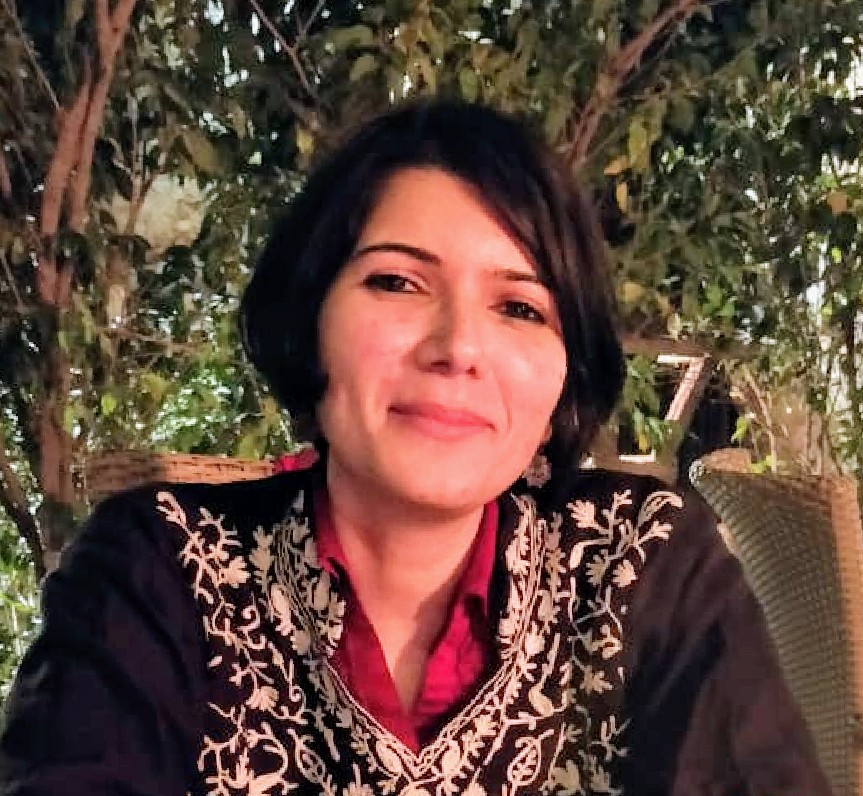
Ranjana Saha
Marie Sklodowska-Curie Actions (MSCA) COFUND Turku Institute for Advanced Studies (TIAS) Turku Intersectoral Excellence Scheme (TIES) Fellow, Department of European and World History
Hello everyone, my current MSCA COFUND TIAS TIES project is about decolonising ‘scientific’ motherhood titled ‘Mothers, Mothercraft & Materialities: Urban India and Transnational Histories of ‘Scientific’ Motherhood in the Nineteenth and Early-Twentieth Centuries’.
I am trained in the field of social history of medicine in colonial India. I have completed my PhD research from the Department of History, University of Delhi, Delhi, India. My research was funded by national and international grants which allowed me to conduct research at various archives and libraries in Delhi and Kolkata, India, and in London, United Kingdom. I will remain indebted to my PhD supervisor Dr. Biswamoy Pati for this entire journey and beyond. His untimely passing has left an irreplaceable void. I wrote this book to fulfil what was actually his dream.
I am, therefore, happy to share that my PhD thesis has finally begun to see the light of day as it has now turned into a book, Modern Maternities Medical Advice about Breastfeeding in Colonial Calcutta (2023), published by Routledge (London & New York) about three months ago. Here is the link in case you might like to have a look sometime:
So, what can I say to encourage you to give this book a chance? Well, I think my strongest argument would have to be that Modern Maternities is one of the first books to focus entirely on breastfeeding advice in colonial India with a spotlight on Calcutta.
The subject of breastfeeding in colonial Calcutta is an important yet relatively unexplored topic. ‘Pure’/ ‘polluting’ and ‘good’ / ‘bad’ biocultural qualities believed to have been transmissible through blood and milk are central to my interrogation of the crisscrossing perceptions of colonial modernity, medicine and motherhood. The rationale behind the book is to bring to light rare British and Bengali textual and visual materials on breastfeeding in colonial Calcutta.
It explores medical opinions about breastfeeding by the bhadramahila (my focus is mainly on the ‘respectable’ Bengali-Hindu women from upper and middle classes and castes), memsahibs (European women), and dais (indigenous midwives and/or wet nurses from lower classes and/or castes, derived from dhā meaning ‘to nurse’). I locate breastfeeding advice at the centre of the very making of ‘modern’ maternities in nineteenth and twentieth century Calcutta. Maternities were usually characterised by age, bodily and emotional ‘maturity’, socioeconomic and cultural backgrounds of the mother and wet nurse, various infant feeding methods, customary and socio-religious beliefs and practices, and medicalised guidelines about motherhood, often popularised as ‘mothercraft’ and central to the global infant welfare movement.
Could a mother or wet nurse feed milk along with her virtues/vices through breast milk? Why was medical surveillance over ‘who’ was breastfeeding the baby necessary? Were ‘race’, class and/or caste, and character relevant when breastfeeding? Did breastfeeding figure in the very definition of who was a ‘good’ versus ‘bad’ mother? How was breastfeeding related to ideas and initiatives concerning the medicalisation of childbirth and midwifery? How did child welfare exhibitions display ‘ideal’ motherhood and care of the newborn? Were tradition/modernity, colonialism and nationalism connected with breastfeeding? Did breastfeeding advice in a colonial setting like Calcutta have global resonances? These are few of the questions I raise and attempt to find answers to in my book – I am curious to learn what would be your main question(s) if you decide to read this book?
If you are interested in my research, please feel free to contact me at ranjana.saha@utu.fi

What insights can you share about your PhD thesis, now published as the book *Modern Maternities: Medical Advice about Breastfeeding in Colonial Calcutta (2023)* by Routledge, and what are some key themes explored in the book?
Regard Telkom University
How does your book *Modern Maternities: Medical Advice about Breastfeeding in Colonial Calcutta (2023)* address the biocultural perceptions of breastfeeding, and what role do rare British and Bengali materials play in illuminating these perceptions?
Visit us Telkom University